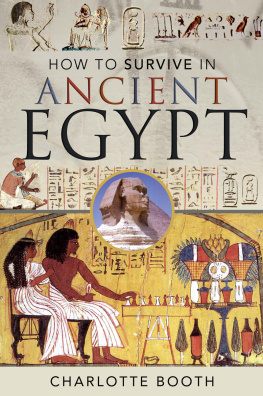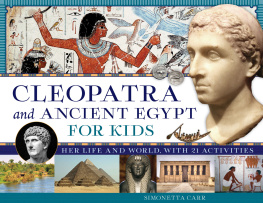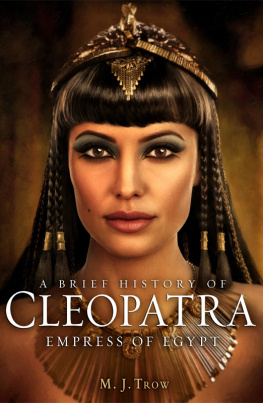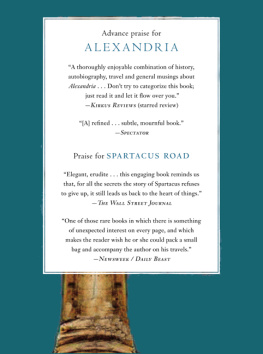T.D. van Basten
Copyright 2015 by T.D van Basten - All rights reserved.
This document is geared towards providing exact and reliable information in regards to the topic and issue covered. The publication is sold with the idea that the publisher is not required to render accounting, officially permitted, or otherwise, qualified services. If advice is necessary, legal or professional, a practiced individual in the profession should be ordered.
- From a Declaration of Principles which was accepted and approved equally by a Committee of the American Bar Association and a Committee of Publishers and Associations.
In no way is it legal to reproduce, duplicate, or transmit any part of this document in either electronic means or in printed format. Recording of this publication is strictly prohibited and any storage of this document is not allowed unless with written permission from the publisher. All rights reserved.
The information provided herein is stated to be truthful and consistent, in that any liability, in terms of inattention or otherwise, by any usage or abuse of any policies, processes, or directions contained within is the solitary and utter responsibility of the recipient reader. Under no circumstances will any legal responsibility or blame be held against the publisher for any reparation, damages, or monetary loss due to the information herein, either directly or indirectly.
Respective authors own all copyrights not held by the publisher.
The information herein is offered for informational purposes solely, and is universal as so. The presentation of the information is without contract or any type of guarantee assurance.
Introduction
Nowadays, in the 21 st Century everyone is busy with the future, and only very few take a moment to look back to the past and think about what really happened. Let me guide you and take your hand, together we will travel back in time. We will resurrect the dead and see how life really was hundreds and thousands of years ago.
Cleopatra VII (69 BC 30 BC), the last Pharaoh of Egypt, was a very educated, crafty, ambitious and clever woman. Her intellect and charisma far greater than her beauty and sexuality - allowed her to keep the power for nearly twenty years by fighting against and allying with - the greatest power at the time, Rome. Although her history was written by who defeated her and, therefore, modified according to conveniences of them, there have been found, in recent archeology researches, evidence of her intellect and achievements that portrayed her beyond her beauty and sexual power. She captivated the two greatest Romans of her time and destroyed herself. Cleopatra was representing everything that the Romans didnt like. Not only was she a woman, but she was a woman with power.
Cleopatra, one of the most famous of all of Egypt's illustrious Pharaohs, has become an indelible part of our understanding of ancient Egypt. What is less well known is the context of her reign - the cultural and political climate at the time of her birth, rule, and death. As a leader, Cleopatra was much more than just a seductive, beautiful temptress. She was a young woman brought to power during a tumultuous time in the history of her country, as well as during the rise of what would become one of the biggest and most powerful Empires in the history of the world: Rome.
As the last Queen of Egypt and the final ruler of the long-standing Ptolemaic dynasty, which itself was the vestige of the conquest of Alexander the Great, she found herself ruling in an Egypt in conflict. Due to inept rule, social discontent, and ill-fated military conquests, the legitimacy and power of the kingship in Egypt were in much decline. Egypt in the time of Cleopatra was not the unified Egypt most of us think of. It was a fractured country, mired by infighting, constant revolt, and power struggle.
Her own rule was certainly not without a struggle. Conflicts with her brother and co-regent reached a point that led the country to all-out civil war. Some factions sided with Ptolemy XIII, others with Cleopatra. Between a poorly-conceived assassination of an important Roman leader, as well as the charismatic wile of Cleopatra herself, she was able to forge an all-important alliance with the famous Julius Caesar, become both his lover, as well as a political ally.
Their alliance led to tensions in Rome, but relative stability for Egypt herself. With the assassination of Caesar, Rome found itself in inner turmoil until the rise of the Second Triumvirate, ruled by Lepidus, Octavian, and, of course, Marc Antony. A fated meeting between Cleopatra and Antony led to an alliance that led to his expulsion from Rome, war being declared on Egypt, and eventually, both of their deaths.
After Cleopatra and Antony famously took their own lives, Egypt fell under the full control of Rome, becoming just another province in the quickly-growing Republic.
The Ptolemaic Dynasty
323 B.C. 30 B.C.
Table of Contents
I:
II:
III:
IV:
V:
I

The Rise of Cleopatra's Egypt

Grecian Egypt
During the glorious years when Greece was on the rise as a superpower, under the rule of Alexander the Great of Macedonia, Egypt had been going through a long period of unstable rule, legitimacy struggles, and economic issues. Conquered by Darius of the Persians, Egypt was no longer under a native rule and it seemed as though one of the world's first civilizations was about to become yet another tale of history.
In 332 B.C., Alexander the Great of Macedonia turned his sights towards Egypt, swiftly and decidedly defeating the Persians. This all was done within a time period of just one year. At the time of this campaign, Egyptians welcomed the Greek as a savior, thinking that it would, perhaps, lead to their independence. Though ultimately, this is not what took place. Alexander did do much to restore some of Egypt's greatness, but had decided to not grant Egypt her independence, and the region was incorporated into the growing Grecian Empire, he did not seek to Greekify the Egyptian belief system or way of life. From the time of his initial conquest, Alexander wished for the culture and structure of Egypt to remain intact.
After conquering the Persians and laying claim to Egypt, Alexander even took the traditional pilgrimage of the Pharaohs, to the Temple of Amun, in Siwa Oasis, whereby the priests were able to anoint him as Son of Amun-Re, and thus, legitimate ruler of the land under their religious tradition. He retained the holy city of Memphis as Egypt's capital and sought to establish a new city of high culture, intellect, and commerce, but did not wish to usurp the traditional capital. Finding a relatively unknown region that was conveniently located within the region which was an excellent place to convert into a port to increase the necessary commerce of Egypt with other territories, he established the iconic city of Alexandria.










